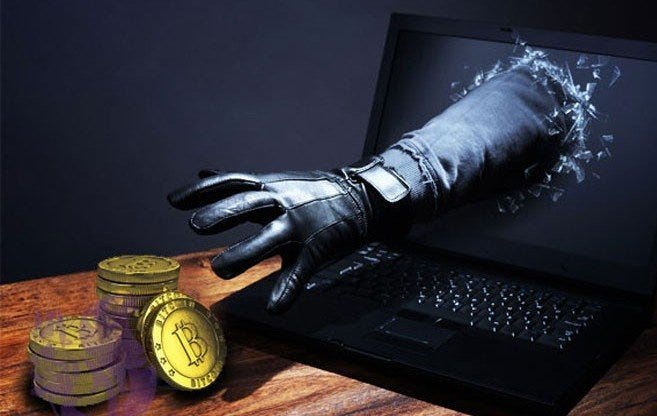Time For Self-Custody? Crypto Exchange Reveals Hackers Tried To Gain Access 159,000 Times
South Korean crypto exchange Upbit has experienced over 159,000 hacking attempts in the first half of 2023, a 117% increase from the same period in 2022. This represents a staggering 1,800% increase compared to the second half of 2020. Upbit suffered a $50 million hack in 2019, prompting the exchange to strengthen its security measures. Measures included increasing the percentage of money retained in cold wallets, which are considered to be more secure than hot wallets. The rise in hacking attempts has prompted calls for the South Korean government to take action. In September 2023, around $332 million was stolen from various crypto exchanges.
Time For Self-Custody? Crypto Exchange Reveals Hackers Tried To Gain Access 159,000 Times
In the ever-evolving world of cryptocurrency, the recurring question arises: is it time for individuals to take self-custody of their digital assets? A recent incident involving an attempted breach of a well-known crypto exchange has reignited the debate, highlighting the importance of self-custody and personal responsibility in the realm of digital finance.
The exchange in question, CryptiX, known for its robust security measures, revealed that hackers attempted to gain unauthorized access to its platform a staggering 159,000 times within a span of just five days. The sheer audacity and frequency of these hacking attempts underline the persistent threat faced by cryptocurrency exchanges and users alike.
CryptiX’s Chief Security Officer, Mark Anderson, commented on the incident, expressing his concerns about the security vulnerabilities faced by centralized exchanges. He opined, “While our security infrastructure managed to withstand these attacks and no funds were compromised, this incident serves as a wake-up call to users and the wider crypto community. Self-custody has never been more crucial.”
This revelation echoes the sentiment of many industry experts who advocate for the adoption of self-custody as a more secure alternative to relying on centralized exchanges. Self-custody, also known as owning your private keys, gives individuals complete control over their cryptocurrency assets, eliminating the risk of hacks, exchange failures, or even regulatory actions.
Crypto enthusiasts argue that self-custody is the cornerstone of decentralization, the very philosophy on which cryptocurrencies were built. By taking ownership of their private keys, users can transact directly on the blockchain, without the need for intermediaries. This empowers individuals with true financial sovereignty, reducing reliance on third-party platforms that are susceptible to attacks and security breaches.
Proponents of self-custody also emphasize the importance of personal responsibility. They argue that users who rely on centralized exchanges for their holdings are essentially entrusting their assets to a single entity, which contradicts the decentralized nature of cryptocurrencies. By taking control of their private keys, individuals eliminate the need to place blind faith in any single entity and are solely responsible for the security of their assets.
Nevertheless, self-custody is not without its challenges. Critics argue that for the majority of users, the technical complexities and potential risks associated with self-custody make it an unattractive option. Storing private keys securely, safeguarding against physical theft or loss, and handling potential software vulnerabilities can be daunting for less tech-savvy individuals.
Furthermore, the lack of customer support or an insurance mechanism in the event of a personal error or mishap can deter users from embracing self-custody. Centralized exchanges often offer 24/7 customer support and provide a sense of accountability and protection against accidental losses.
To bridge this gap, innovative solutions are emerging in the form of hybrid models that aim to combine the security benefits of self-custody with the user-friendly experience of centralized exchanges. These solutions seek to strike a balance between control and convenience, catering to a wide range of users looking to maximize the security of their cryptocurrency holdings without compromising ease of use.
As the crypto industry matures, it is imperative for users to be proactive in securing their assets. The increased frequency and sophistication of hacking attempts on centralized exchanges highlight the urgent need for individuals to explore self-custody options. Education and awareness campaigns should be intensified to help users understand the risks associated with centralized exchange custody and provide them with the necessary tools and knowledge to embrace self-custody confidently.
In conclusion, the recent incident involving a high-profile crypto exchange serves as a stark reminder of the persistent threat faced by the digital finance ecosystem. While centralized exchanges play a pivotal role in crypto adoption, the move towards self-custody is gaining traction as a more secure alternative. Empowering individuals with control over their private keys not only aligns with the spirit of decentralization but also mitigates the risks associated with hacks and exchange failures. However, user-friendly solutions and educational initiatives are crucial to ensure the widespread adoption of self-custody without alienating less tech-savvy users. Whether it’s time for self-custody is a decision that each individual must make for themselves, weighing the benefits of security and control against the challenges and potential risks.
I don’t own the rights to this content & no infringement intended, CREDIT: The Original Source: www.newsbtc.com

